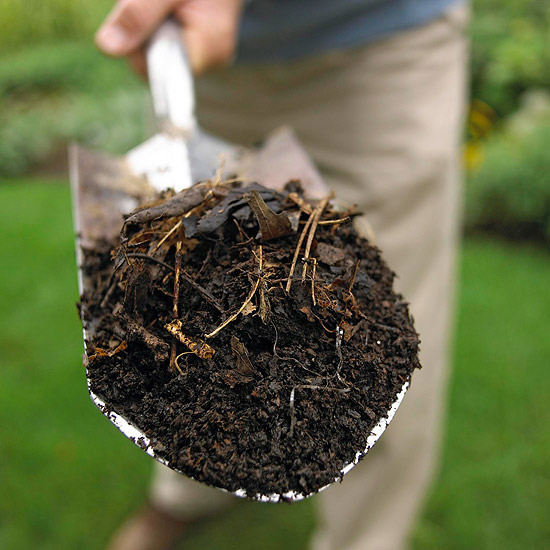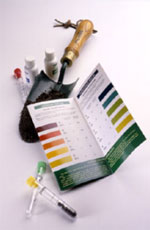






A soil test has been noted by successful gardeners as the most efficient and money-saving step toward better gardening. A soil test measures levels of nutrients (nitrogen, phosphorus, and potassium) in your garden soil that are available to plants, as well as what your soil lacks.
The test also indicates your soil's pH level -- the relative acidity or alkalinity -- that affects how plants take up nutrients and thrive. Soil pH ranges from 1.0 (acid) to 14.0 (highly alkaline), with 7 being neutral. In certain regions, soil is typically more acid (in rainy regions) or more alkaline (in desert areas) and needs to be amended accordingly for plants to thrive there. To raise too-low pH (acidic): add lime, dolomite limestone, or wood ashes. To lower too-high pH (alkaline): add horticultural sulfur, composted oak leaves, or pine needles.
continue reading below
Copyright © www.100flowers.win Botanic Garden All Rights Reserved